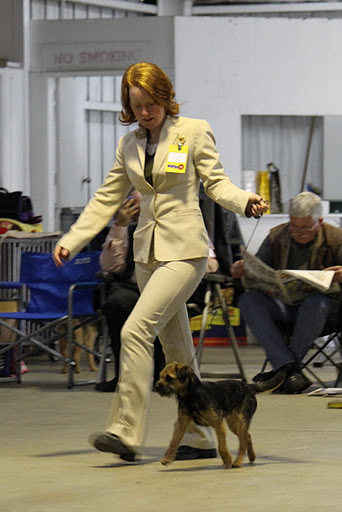Socialisation: Not Everything
For so long, the message has been “socialise, socialise, socialise“. The idea has been that, regardless of the puppy you select, you should be able to socialise it into a happy, normal, well adjusted pup.
The more I learn about dogs, the more I am inclined to disagree. I think we have hugely overlooked the role of genetics in determining many behaviours. While I will always advocate socialisation to get the best out of a dog, I think some dogs are genetically wired to be confident despite their socialisation experiences.
I have some anecdotal evidence to share with you.
I used to work in boarding kennels. We had a pretty extensive questionnaire we’d ask new clients and, sometimes, owners would admit: “We didn’t really socialise her.” Considering these admissions, most of these dogs were actually quite okay. I can recall very few cases when these dogs were outwardly aggressive to people, and most were okay with dogs, too. What kind of explanation supports this evidence? To me, it suggests that these dogs were either genetically ‘good’ dogs, solid and confident, or genetically ‘mostly good’ dogs, which needed minimal socialisation to complete an adequate behaviour code.
Another example with my own girl, Winona. Winona came into my household at a difficult time and got relatively little socialisation compared to other puppies that have come through my house. However, she is a very confident dog. She is tolerant of all handling, she likes all people, and though she is sometimes ‘overwhelmed’ by large dogs when she first meets them, she recovers well and interacts appropriately. It’s clear that Winona is supposed to be a confident, happy, non-aggressive dog. Socialisation had, at most, very little to do with her as an adult dog. Considering the confident, non-aggressive dispositions of her parents, I am not surprised. Winona is genetically confident.
And then let’s consider Mooch. Mooch was a foster dog we had last year for 2 months. She was an incredibly fearful dog. It took two weeks before my partner could touch her. Once she was on my lap when a stranger approach, and she expelled her anal glands in terror (I didn’t even know this was possible). From her history, it seems she was (almost) kept exclusively in a house for 2 years, being tended by immediate family, with few visitors and few outings.
It took very little effort to bring Mooch around to a near-normal dog. She will never be perfect, but she didn’t take huge efforts or time to get her to be a decent dog. I took her out to tracking training with me a few times, and this is a very busy house – you need to get used to seeing a lot of people fairly quick! You would think, from her history, Mooch would be impossible to restore to confidence. I think Mooch was never meant to be a fearful dog – I met Mooch’s parents and I have met few dogs as beautifully confident and contented. I think Mooch was a genetically confident dog, with a hugely neglected socialisation period, that meant she displayed fearful behaviours.
Now, again, I believe the environments and the genetics work together to produce the dog. I’d like to emphasise that I think socialisation is important, but not the ‘be-and-end-all’ of dog behaviour. To me, the message of “socialise, socialise, socialise” is outdated.
I vote for a new slogan: “select, select, select”. I’ll explain in my next post.




